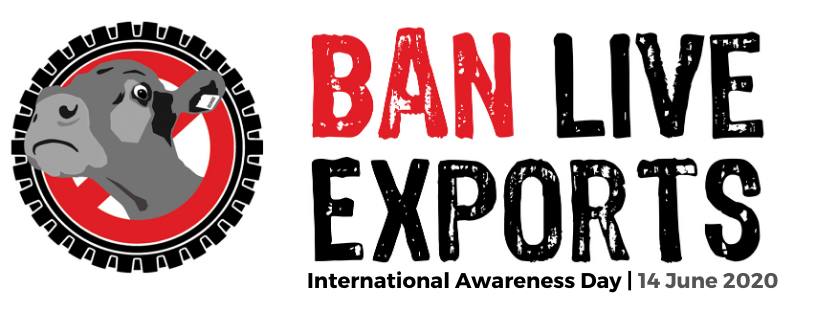Canadian Cattle, Sheep and Goat Producers Gain Market Access to Philippines
Agriculture and Agri-Food Canada
Ottawa, Ontario, January 24, 2012– Canadian cattle, sheep and goat producers will benefit from new access to yet another international market. Agriculture Minister Gerry Ritz and International Trade Minister Ed Fast announced today that the Government of Canada has secured live ruminant market access to the Philippines.
"The Philippines’ market is now open for Canadian exports of live cattle, sheep and goats," said Minister Ritz. "Step by step, market by market, the Harper Government is working closely with industry to increase market access for Canada’s safe, high quality products, in turn driving profitability for our producers and growing our economy."
"Canada welcomes this decision by the Philippines. This is yet another win for Canadian workers and producers and their families," said Minister Fast. "Our government understands the importance for our farmers and producers to gain access to new markets. We will continue to work on their behalf because we know that free and open trade is the best way to create jobs and prosperity for hardworking Canadians."
The Philippines imports $9 million annually worth of cattle and nearly $300, 000 of sheep and goats. Canadian producers now have the ability to compete for sales in this market. This new market access further strengthens the trade relationship between Canada and the Philippines. The Philippines is an important commercial market for Canada, importing more than $235 million worth of Canadian agricultural and agri-food products in 2010.
Following the announcement made last week that Canadian beef under 30 months of age can re-enter the South Korean market, today’s announcement demonstrates the continued efforts of the Harper Government to diversify international markets and maximize trade opportunities for the benefit of Canadian producers.
Comment: Our morally bankrupt government considers this an economic coup.
October 15, 2018 Government of Canada secures new access in key ASEAN markets
“Canada is building strong markets around the world which will benefit our farmers and food processors. These recent market access gains are setting the stage for deeper bilateral economic relations between Canada and the ASEAN region, and will contribute to our government’s goal of reaching $75 billion in agri-food exports by 2025.” - Lawrence MacAulay, Minister of Agriculture and Agri-Food
Reference: Agriculture & Agri-Food Canada: Industry, Markets & Trade
Agriculture and Agri-Food Canada
November 23, 2018 Canada Has Long Exported Animal Cruelty By The Millions (excerpt)
The transportation of farmed animals over long distances, most frequently by ship, has received significant scrutiny from animal advocacy organizations and society in general since the first evidence of what animals endure during the journey began appearing in 2003.
In response to growing public concern and scrutiny, some of the largest exporting countries have ended the practice, sometimes temporarily, sometimes permanently. New Zealand effectively banned live export for the purpose of slaughter in 2007 after it was exposed that 4,000 sheep died on a ship bound for Saudi Arabia some years earlier.
Australian authorities have temporarily suspended live exports to a number of countries, including Saudi Arabia in 2003, Egypt in 2006, Indonesia in 2011, Gaza in 2013, Jordan in 2014, and specific facilities in Vietnam in 2016. Each suspension followed the release of footage showing inhumane transport conditions or horrific abuse in slaughterhouses upon arrival at the country of destination.
Although less widely known, Canada is one of the world's leading exporters of live animals and animal products. In 2014, Canada was the world's fifth-largest exporter of agriculture and agri-foods. Last year alone, Canada exported over 24 million live animals. Chicks and turkey poults accounted for the vast majority at over 17 million, with other young animals, such as calves and piglets, also intended for fattening, generally in the US, accounting for another nearly five million. The remaining two million animals endured the longest journeys, travelling thousands of kilometres by ship or cargo plane to countries where few to no animal welfare regulations exist.
Not included in this already staggering statistic are the nearly 40 million fertilized eggs of various species exported by Canada. Information on what becomes of these birds seems particularly elusive, but may include a delicacy called balut, whereby a bird embryo (usually a duck) close to hatching is boiled alive and eaten from the shell.
And the numbers continue to rise. The Canadian government announced in its 2017 budget its intention to increase overall agricultural exports by 40 per cent by 2025. Along with animal products, the goal includes expanding the number of live animals exported. Canadian politicians and industry leaders are particularly keen on expanding market shares in China. The agricultural press excitedly covers trade mission after trade mission with industry representatives joining federal ministers on expensive trips abroad. Just last week, the chair of Canadian Pork International accompanied Federal Minister of Agriculture and Agri-Food Lawrence MacAulay on a 10-day trade mission to China.
Comment: Canada’s federal government routinely sacrifices animal welfare and bows to industry in its relentless pursuit of profit. Meanwhile, the inhumane treatment of farm animals is resonating with ordinary Canadians, many of whom have and are modifying their diets to reflect their moral values.
Ban Live Export - Animals International Every day, right across the
world, vulnerable animals are enduring dangerous journeys on trucks and on
ships, just to be killed for their meat — often horrifically — at their
destination.
Visit our Facebook page, Canadians Against Live Export
Canadian Meat Council: exports, consumption, and other news
Take action - For the current status of Canadian politicians see: Members of Parliament, Canada